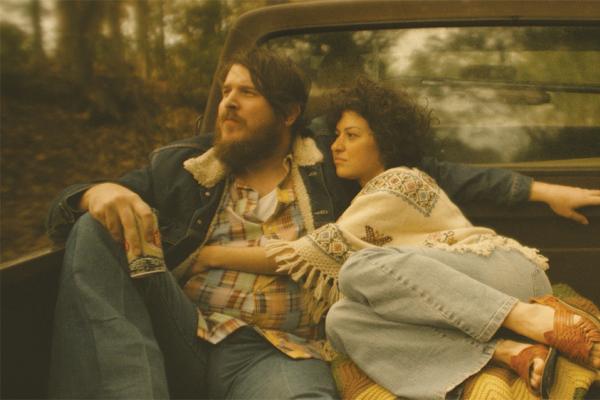IN THE FILM BLAZE, directed by actor Ethan Hawke, happiness is rare and meaning always seems slightly out of reach, just around the corner. An unconventional, compelling biopic of Blaze Foley, a country musician who died too young, and violently, Blaze is a challenging alternative to familiar rags-to-riches tales. It’s rags-to-slightly-more-fashionable-rags, where the loneliness of the road is never salved by the acclaim of a crowd, the price of art being the very life of the artist.
As a movie about the pain of making music, it’s up there with Tender Mercies, Coal Miner’s Daughter, and Dreamgirls. As a biopic it gets closer to the inner life of its subject than most—Ben Dickey’s hypnotic lead performance embodies the drive to write, to sing, to perform, even if no one’s watching. “He knew the value of zero,” says iconic songwriter Townes van Zandt in the film. Van Zandt is played by Charlie Sexton, one of van Zandt’s cultural heirs and a frequent member of Bob Dylan’s band. The value of zero here is the notion that what we’re most called to in life is authenticity, whatever the reward.
But authenticity without accountability can lead us to ask someone else to carry weight that is legitimately ours. Life is not a solo performance, so those whose gift is to entertain or provoke in public have work to do to keep propaganda from blinding them to their own flaws. Sybil Rosen, who partnered with Foley in life and co-wrote the film, carries so much for him—working without affirmation to buy his guitar, waiting, hoping. And it’s not enough. But her character in Blaze isn’t self-pitying (nor is Alia Shawkat’s fully alive performance), just a sad reminder of what happens when we divorce the fire of creativity from mature community.
There’s a story that one of the world’s best-known musicians takes a replica of his own living room on tour so he can conjure the feeling of walking off his bus straight into his house. This is an imaginative solution to being on the road more nights than being at home. Minstrels, storytellers, and movement-builders have always wandered, sharing their gifts, nourishing the people, hopefully leaving a slightly better world in their wake. But there’s a cost to such wandering. We all need a circle of meaningful friendships whose participants have our best interests at heart; we all need wisdom figures who care more about our well-being than their egos. Neither are automatic. Like meaning over happiness, they need to be pursued.

Got something to say about what you're reading? We value your feedback!







